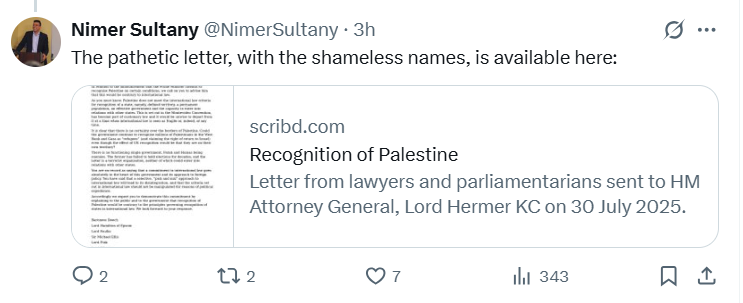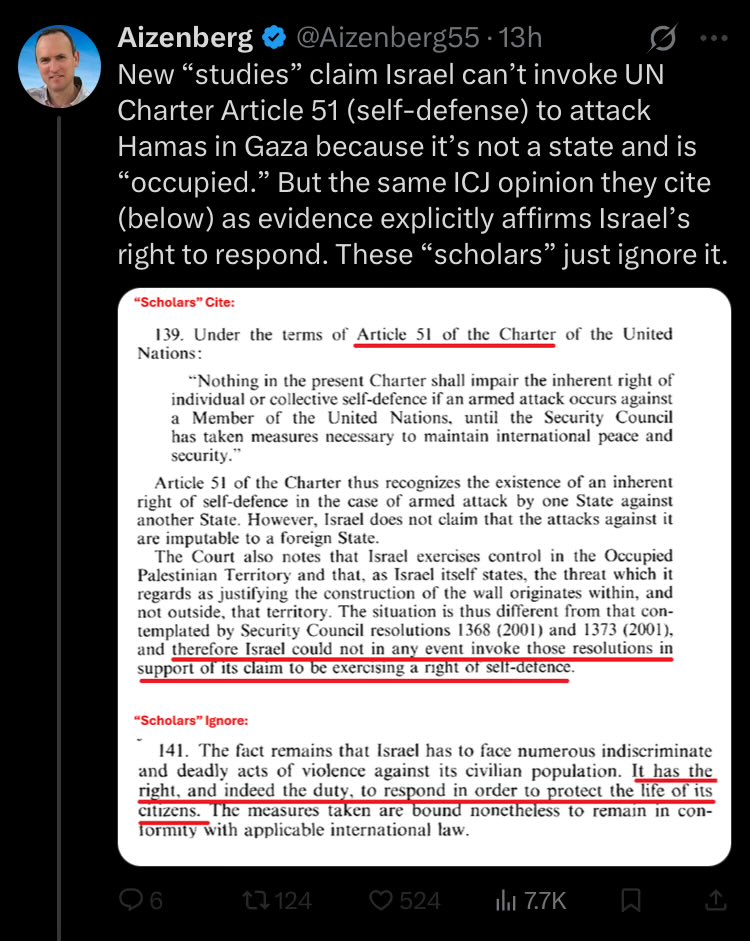I just made an hour-long video on how frustrating it's been to see academics excluded from Israel-Palestine discourse and here we are, a few days later, with ALL my academic mutuals saying this letter on recognition and Montevideo is an embarrasing joke and no media asking them🧵
• • •
Missing some Tweet in this thread? You can try to
force a refresh














